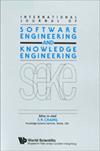Demystifying Practices, Challenges and Expected Features of Using GitHub Copilot
IF 0.6
4区 计算机科学
Q4 COMPUTER SCIENCE, ARTIFICIAL INTELLIGENCE
International Journal of Software Engineering and Knowledge Engineering
Pub Date : 2023-10-17
DOI:10.1142/s0218194023410048
引用次数: 0
Abstract
With the advances in machine learning, there is a growing interest in AI-enabled tools for autocompleting source code. GitHub Copilot, also referred to as the “AI Pair Programmer”, has been trained on billions of lines of open source GitHub code, and is one of such tools that has been increasingly used since its launch in June 2021. However, little effort has been devoted to understanding the practices, challenges, and expected features of using Copilot in programming for auto-completed source code from the point of view of practitioners. To this end, we conducted an empirical study by collecting and analyzing the data from Stack Overflow (SO) and GitHub Discussions. More specifically, we searched and manually collected 303 SO posts and 927 GitHub discussions related to the usage of Copilot. We identified the programming languages, Integrated Development Environments (IDEs), technologies used with Copilot, functions implemented, benefits, limitations, and challenges when using Copilot. The results show that when practitioners use Copilot: (1) The major programming languages used with Copilot are JavaScript and Python, (2) the main IDE used with Copilot is Visual Studio Code, (3) the most common used technology with Copilot is Node.js, (4) the leading function implemented by Copilot is data processing, (5) the main purpose of users using Copilot is to help generate code, (6) the significant benefit of using Copilot is useful code generation, (7) the main limitation encountered by practitioners when using Copilot is difficulty of integration, and (8) the most common expected feature is that Copilot can be integrated with more IDEs. Our results suggest that using Copilot is like a double-edged sword, which requires developers to carefully consider various aspects when deciding whether or not to use it. Our study provides empirically grounded foundations that could inform software developers and practitioners, as well as provide a basis for future investigations on the role of Copilot as an AI pair programmer in software development.揭秘使用GitHub Copilot的实践、挑战和预期功能
随着机器学习的进步,人们对自动完成源代码的人工智能工具越来越感兴趣。GitHub Copilot,也被称为“人工智能配对程序员”,已经接受了数十亿行GitHub开源代码的培训,自2021年6月推出以来,这类工具的使用越来越多。然而,从实践者的角度来看,很少有人致力于理解在自动完成源代码编程中使用Copilot的实践、挑战和预期特性。为此,我们通过收集和分析Stack Overflow (SO)和GitHub discussion的数据进行了实证研究。更具体地说,我们搜索并手动收集了303个SO帖子和927个与Copilot使用相关的GitHub讨论。我们确定了编程语言、集成开发环境(ide)、与Copilot一起使用的技术、实现的功能、使用Copilot时的好处、限制和挑战。结果表明,当从业者使用Copilot时:(1) Copilot使用的主要编程语言是JavaScript和Python, (2) Copilot使用的主要IDE是Visual Studio Code, (3) Copilot最常用的技术是Node.js, (4) Copilot实现的主要功能是数据处理,(5)用户使用Copilot的主要目的是帮助生成代码,(6)使用Copilot的显著好处是有用的代码生成。(7)从业者在使用Copilot时遇到的主要限制是集成困难;(8)最常见的期望是Copilot可以与更多的ide集成。我们的研究结果表明,使用Copilot就像一把双刃剑,需要开发人员在决定是否使用它时仔细考虑各个方面。我们的研究提供了经验基础,可以为软件开发人员和从业者提供信息,并为未来调查Copilot作为软件开发中AI结对程序员的作用提供基础。
本文章由计算机程序翻译,如有差异,请以英文原文为准。
求助全文
约1分钟内获得全文
求助全文
来源期刊
CiteScore
1.90
自引率
11.10%
发文量
71
审稿时长
16 months
期刊介绍:
The International Journal of Software Engineering and Knowledge Engineering is intended to serve as a forum for researchers, practitioners, and developers to exchange ideas and results for the advancement of software engineering and knowledge engineering. Three types of papers will be published:
Research papers reporting original research results
Technology trend surveys reviewing an area of research in software engineering and knowledge engineering
Survey articles surveying a broad area in software engineering and knowledge engineering
In addition, tool reviews (no more than three manuscript pages) and book reviews (no more than two manuscript pages) are also welcome.
A central theme of this journal is the interplay between software engineering and knowledge engineering: how knowledge engineering methods can be applied to software engineering, and vice versa. The journal publishes papers in the areas of software engineering methods and practices, object-oriented systems, rapid prototyping, software reuse, cleanroom software engineering, stepwise refinement/enhancement, formal methods of specification, ambiguity in software development, impact of CASE on software development life cycle, knowledge engineering methods and practices, logic programming, expert systems, knowledge-based systems, distributed knowledge-based systems, deductive database systems, knowledge representations, knowledge-based systems in language translation & processing, software and knowledge-ware maintenance, reverse engineering in software design, and applications in various domains of interest.

 求助内容:
求助内容: 应助结果提醒方式:
应助结果提醒方式:


